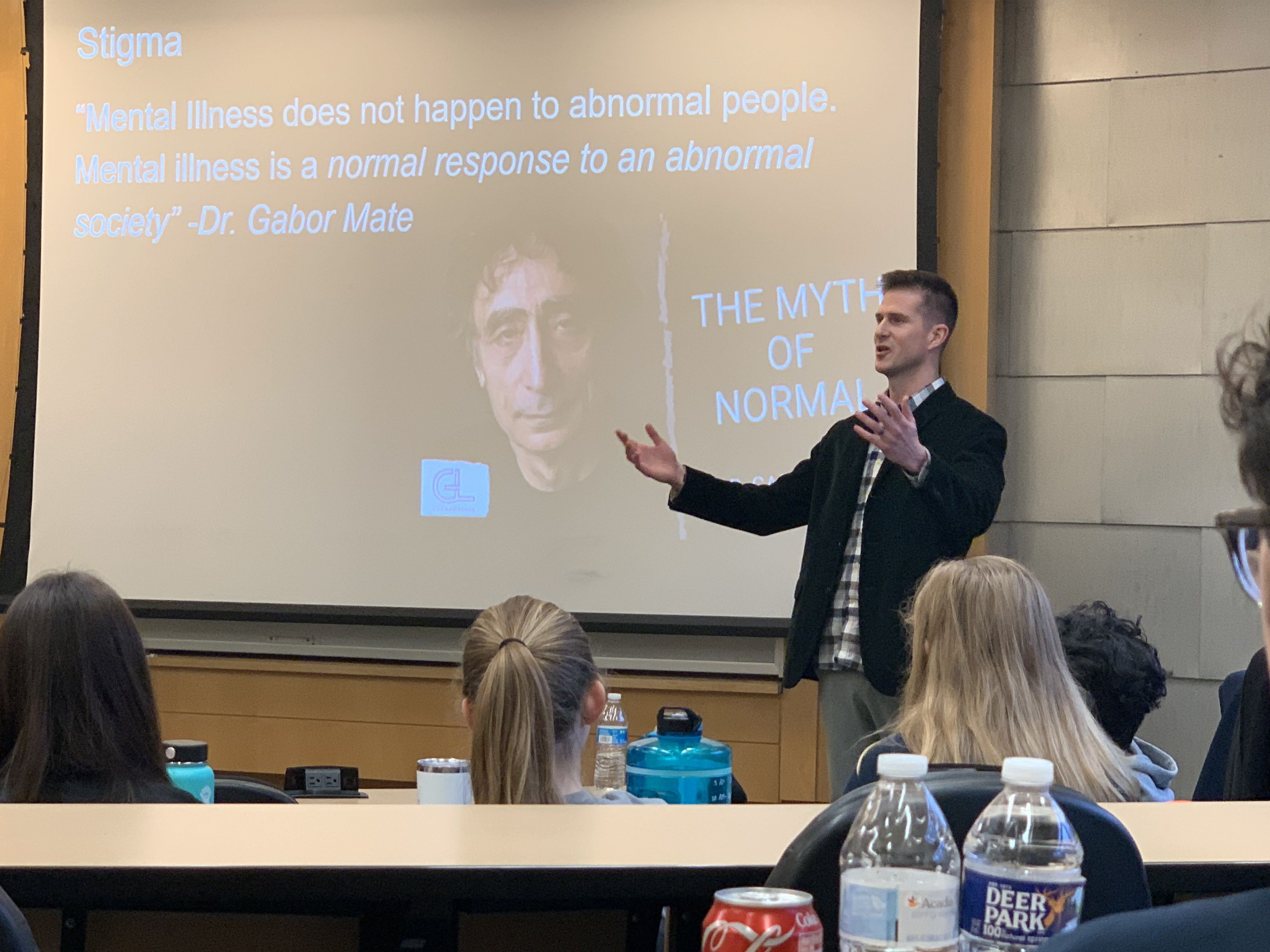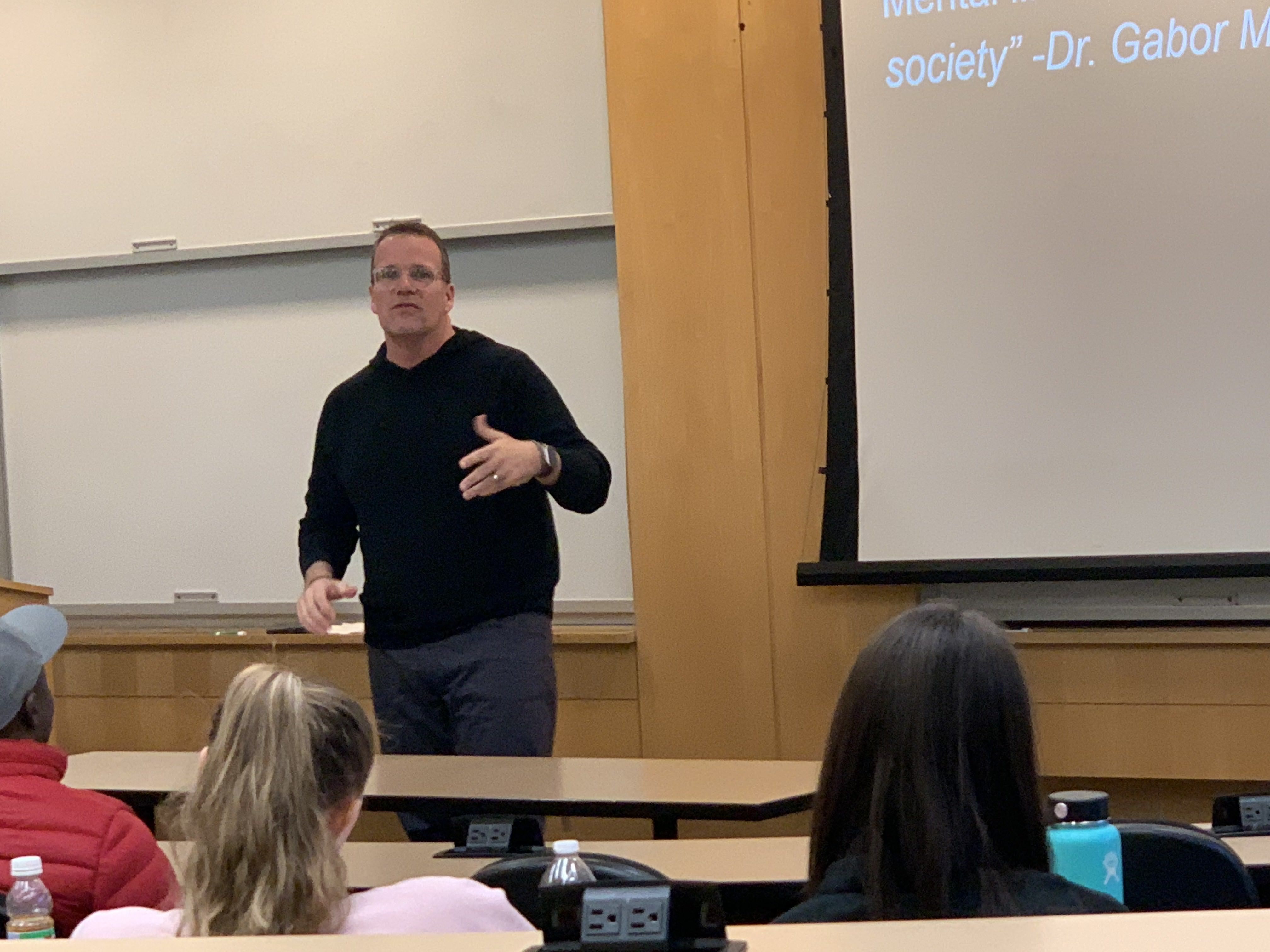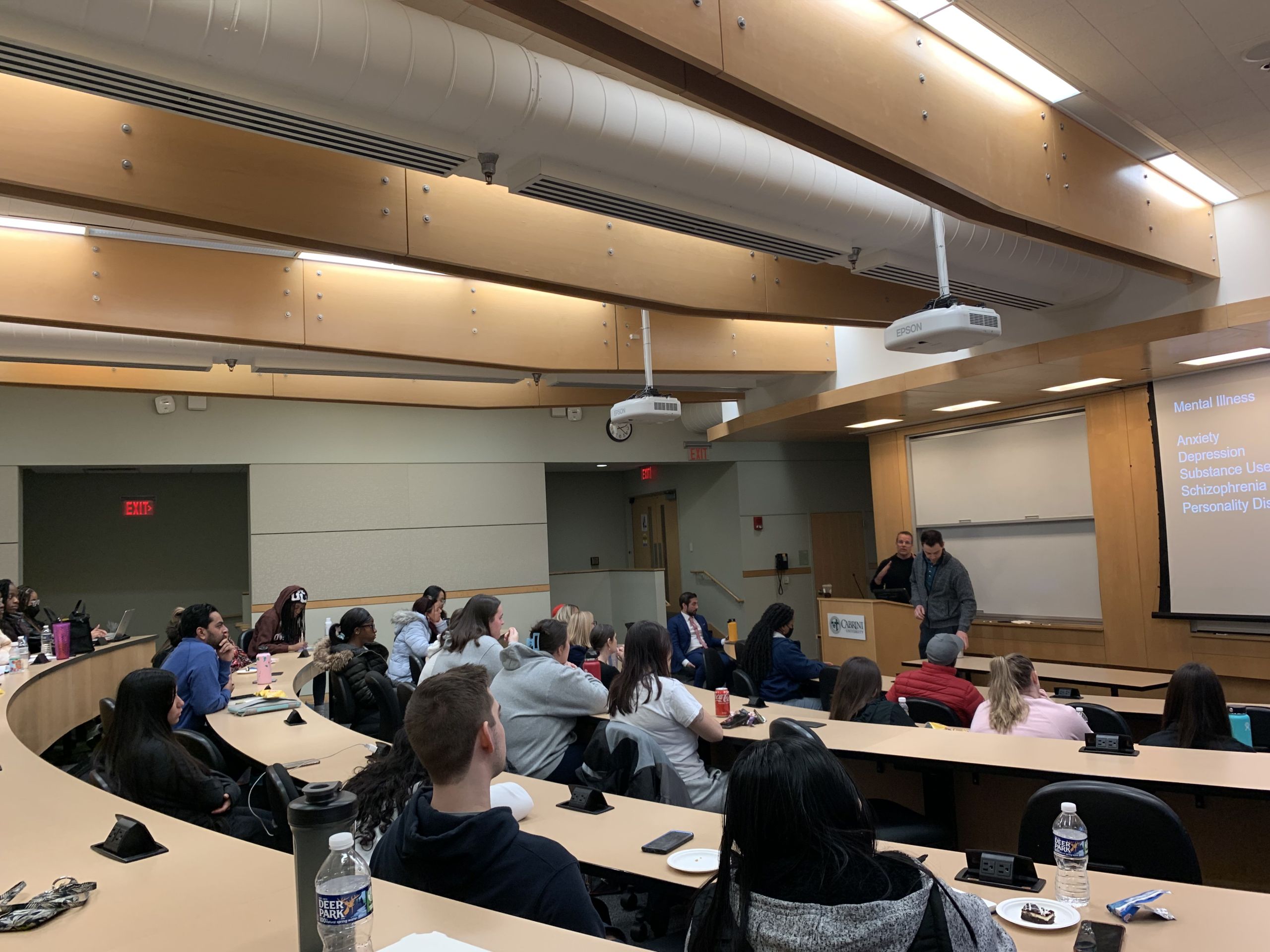On Wednesday, Jan. 25, Cabrini’s Collegiate Recovery Board hosted a mental health check-in presentation during Common Hour. The event was co-sponsored by the Cabrini chapters of The Hidden Opponent and Morgan’s Message. Students across all years and majors packed the Iadarola Center lecture hall for the event, which gave attendees the opportunity to engage in a discussion about mental well-being and coping skills.
The presentation was given by Pat Brown, Phil Waibel, and Brendan Letts. Brown is a licensed clinical social worker who teaches an ECG course at Cabrini called “Rethinking Addiction.” Waibel is a Collegiate Recovery graduate assistant at Cabrini. Letts is also a social worker.
A place to speak out

During the event, the presenters covered a range of topics, including the causes behind substance abuse, as well as information about clinical anxiety and panic attacks. Attendees were invited to share how substance use and mental health issues affected their own lives.
The idea behind the event is to show that Cabrini truly cares about students’ mental well-being. “There’s talk, then there’s action. Professional organizations and jobs are going to say, ‘We care about your mental health.’ Ok, show me,” Brown said.
“Having professionals in the room talking to students and faculty about things to look for and how to help yourself and others, that’s how you show people you care. It’s one thing to say, ‘We got our arms around you, we’ll support you,’” Brown said. “I think this is support. Standing up front and saying, ‘These are things to look for and work towards, and here are resources.’”
Sean McLaughlin-McAleese, sophomore international business major, attended the event and shared what he took away from his experience. “I learned about Cabrini’s on-campus resources that I didn’t know existed before,” he said. “I knew a lot going in about mental health issues and the stigma around them.”
McLaughlin-McAleese also spoke out during the event about his own experience with mental health issues and how it changed his perspective. “You could be going through a mental health crisis, and someone could be going through the same thing, but they’ll still help you,” he said.“That could change someone’s day, week, or life.”
Breaking the stigma

The topic of mental health often carries a negative connotation, which makes having productive conversations about it a challenge. Students may be hesitant to speak about their experiences, especially in front of a large group.
“I think the age we live in can cause mental health issues, especially the social media world and all the different outlets of information we’re receiving,” McLaughlin-McAleese said. “It’s important to check in with your mental health a lot more, because a lot of people just hide it. Go to these events just to see if it’s something for you, and you can learn something from them as well.”
Brown echoed the same sentiment. “We often wait until we’re ready to have these conversations. Do it before you’re ready,” he said. “That’s courage to change. ‘I’m doing stuff that I’m uncomfortable doing, but I’m doing it anyway.’ When [these kinds of events happen], go. Get involved; there are communities you can latch onto, but you have to take a few steps to get connected.”
According to Brown, another mental health check-in event is scheduled for later on this spring, although no date has been announced yet. For information about the Collegiate Recovery Program, students can contact Brown at jb3464@cabrini.edu and Waibel at pw7002@cabrini.edu or email recovery@cabrini.edu.







